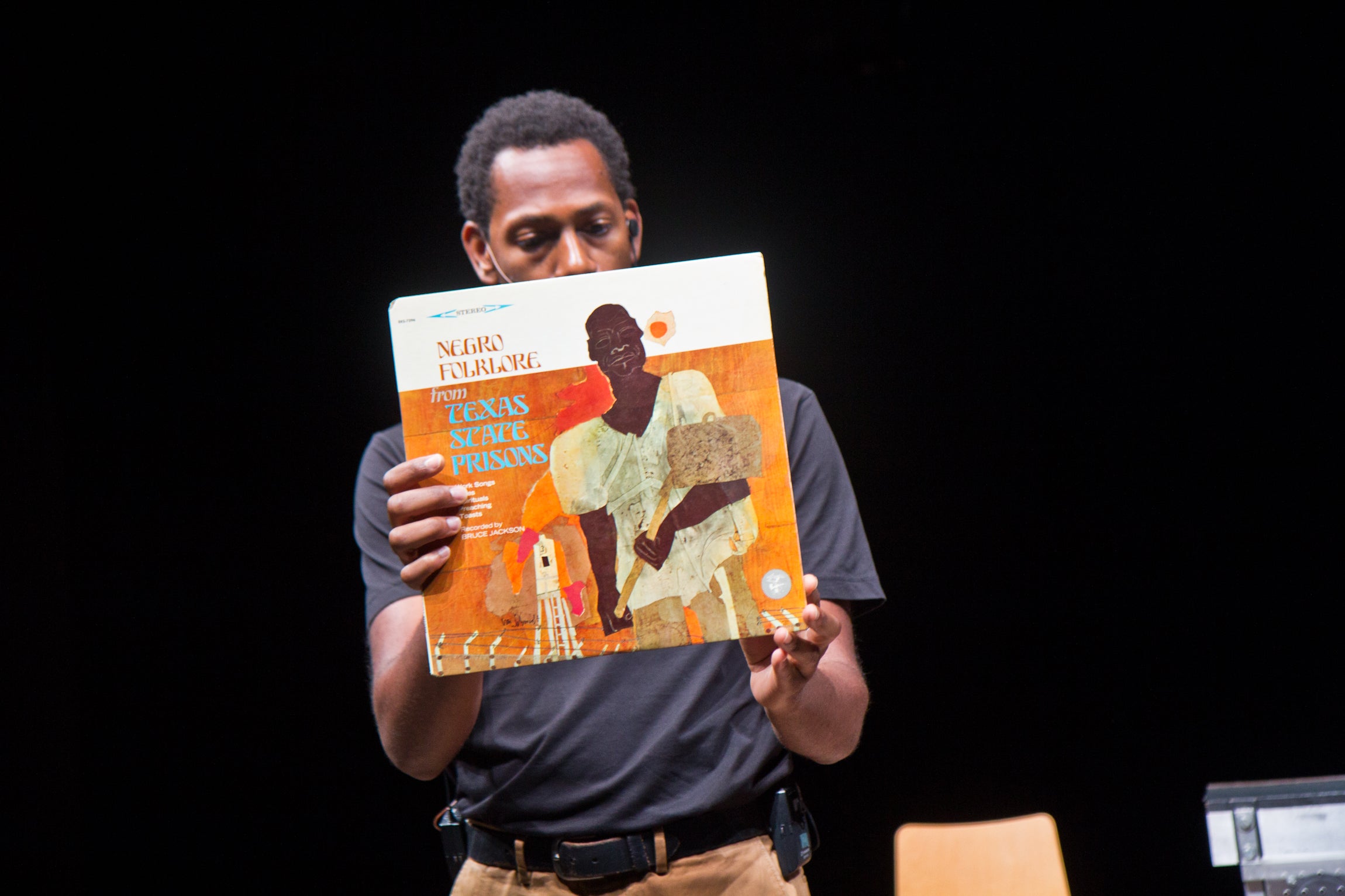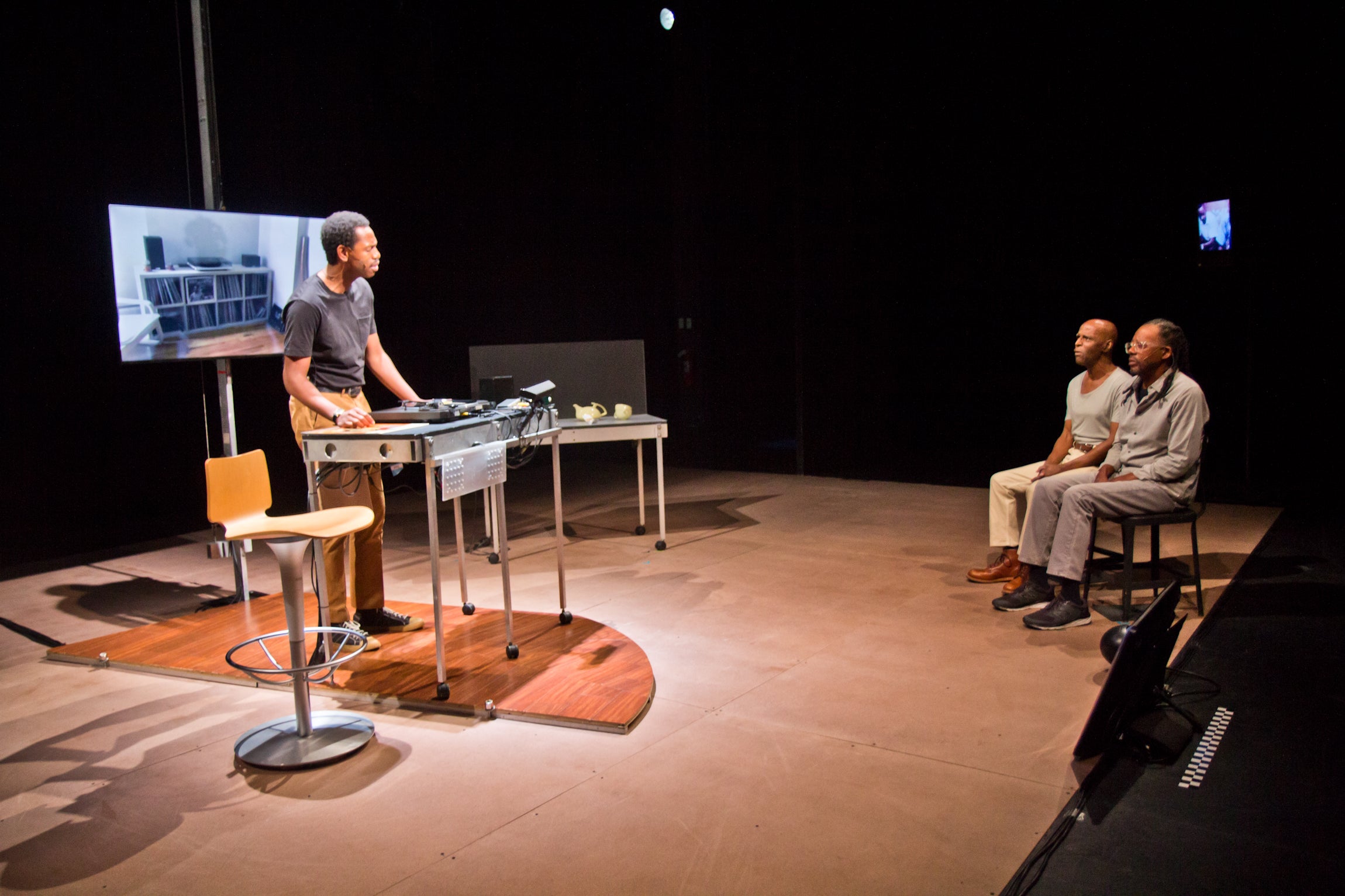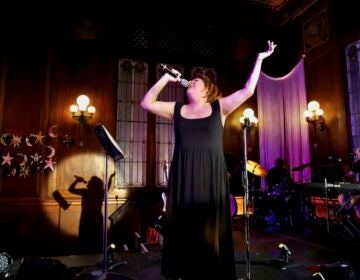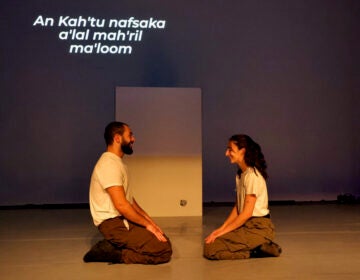‘The B Side’ blends Texas prison recordings with drama for the Fringe
Taking 1960s recordings of prison work songs, “The B-Side: Negro Folklore from Texas” tries to transport you into the past.
Listen 4:34
Principal actor Eric Berryman reads text from "Wake Up Dead Man: Hard Labor and Southern Blues" by Bruce Jackson, part of a performance for the 2019 Philadelphia Fringe Festival. (Kimberly Paynter/WHYY)
When folklorist Bruce Jackson recorded prison work crews in Texas in the late 1960s, he learned what it took to lead a crew in a work song.
“It doesn’t matter if you have a good voice, the most important thing is if you can keep time,” said actor Eric Berryman, who is featuring Jackson’s recordings in a Fringe Festival production called “The B Side: Negro Folklore from Texas State Prisons.”
“You can sing as good as Peter could preach, have an angelic voice, but if you couldn’t keep time, he wasn’t going to be a good work song leader, because that was the most important thing first and foremost,” he elaborated.
In the production, Berryman and two other actors move around the room interpreting and giving life to the songs and play the recordings. Most of the narrative is inspired by the liner notes and lots of research.

The performance seeks to transport you to understand what conditions inside Texas prisons were like back then. Berryman said it helps the audience understand the situation more completely than if they had just listened to the Jackson recordings.
“We took a great deal [of time] to figure out what’s said, before I even drop the needle, and we say between the tracks to give a little context, which is something that if you just listen to the album you would have to spend hours and hours to find that context,” he said.
Berryman, working with director Kate Valk, of the experimental Wooster Group, went to great pains not to convert the performance into a historic documentary, but to create it as a compelling theater piece. The goal is to bring out, by acting, the humanity of the people locked behind bars.
Valk said they want to appreciate the art of the music while remembering how the extreme conditions had roots in terrible chapters of the country’s history.

“This is an incredible art form, and it’s complicated because it comes out of a situation which is a direct antecedent to slavery,” Valk said. “The conditions, of course, are dire, but the art form is incredible, it’s got that paradoxical nature.”
In the research, Berryman found this quote from a prisoner explaining how the music helped them cope: “You get worked to death, or beat to death. That’s why we sang so many of these songs. We would work together and help ourselves, and help out our fellow man.”
The performance tries to highlight other parts of prison life from that era, too.
“This album is not just 18 working tracks of working songs. These men had and did other things, they had this whole body of these things called ‘toasts,’ which are these African-American streets limericks, urban poetry, these rhyming couplets,” said Berryman.
The recordings even include a prisoner delivering a mock sermon, as if he’s in the pulpit of a grand church, while he’s in a prison commissary.
“The B-Side: Negro Folklore from Texas State Prisons” runs at the FringeArts theater, 140 N. Columbus Blvd., until Sunday, Sept. 8.
WHYY is your source for fact-based, in-depth journalism and information. As a nonprofit organization, we rely on financial support from readers like you. Please give today.




